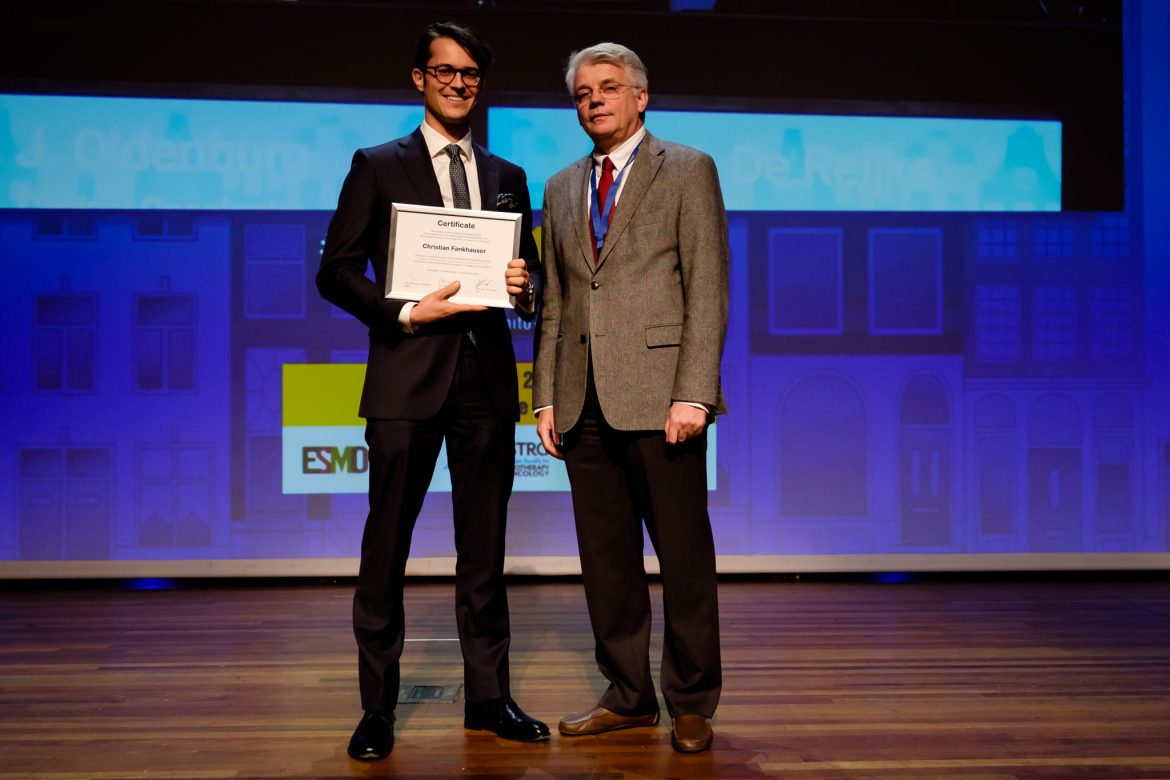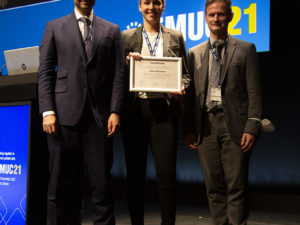Four promising urologists were granted awards at EMUC18 today. Chairs Dr. Jan Oldenburg (NO), Prof. Theo De Reijke (NL) and Prof. Dr. Thomas Wiegel (DE) handed out the Best Oral Presentation Award and three Best Unmoderated Poster awards.
Dr. Christian Fankhauser (CH) [pictured above] received the Best Abstract Award for his team’s study which was entitled “Automated Gleason grading of prostate cancer via deep learning”.
He stated, “Overall, our study shows promising results regarding the applicability of deep learning-based solutions towards more objective and reproducible prostate cancer grading, especially for cases with heterogeneous Gleason patterns.”
Awardees of the Best Unmoderated Poster awards were as follows:
Dr. Robert Abouassaly (US) and his team submitted their study “Improving Standard Trans-Rectal Prostate Biopsy Results Using High Resolution Micro-Ultrasound Real-Time Targeting for Suspicious Areas”.
Their study’s initial results with the ExactVu micro-ultrasound imaging platform suggest that it can increase detection rates of significant prostate cancers, potentially allowing earlier treatment and more accurate follow-up. These encouraging results so soon after implementing this new modality reflect the short learning curve and suggest that similar results may be achievable across the general urology community.

Dr. Abouassaly’s colleague, Dr. Brian Wodlinger (CA), accepted the award on his behalf.
Drs. Malou Kuppen (NL) and her team submitted their study “Post-docetaxel survival in metastatic castration-resistant prostate cancer (mCRPC) is improving in the Netherlands”. Their study concluded that new life-prolonging drugs (LPD) resulted in doubling of patients treated post-docetaxel (DOC), a shift in the population treated and a significant increase in Median OS (mOS) in the Netherlands.

Dr. Henrik Kjölhede (DK) and his team submitted “Predicting bone metastasis on pretreatment imaging in men with intermediate or high-risk prostate cancer: A nationwide, population-based study”.
“We have developed a nomogram to predict the probability of bone metastasis on pretreatment imaging for men with intermediate and high-risk prostate cancer, which can avoid unnecessary pretreatment imaging in a large proportion of patients,” said Dr. Kjölhede.




